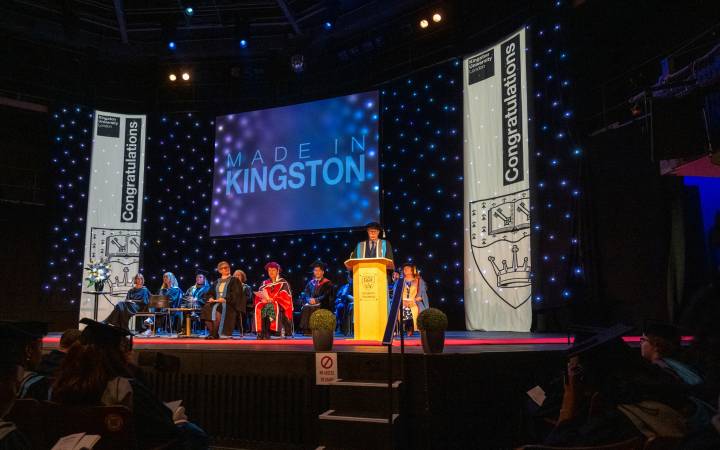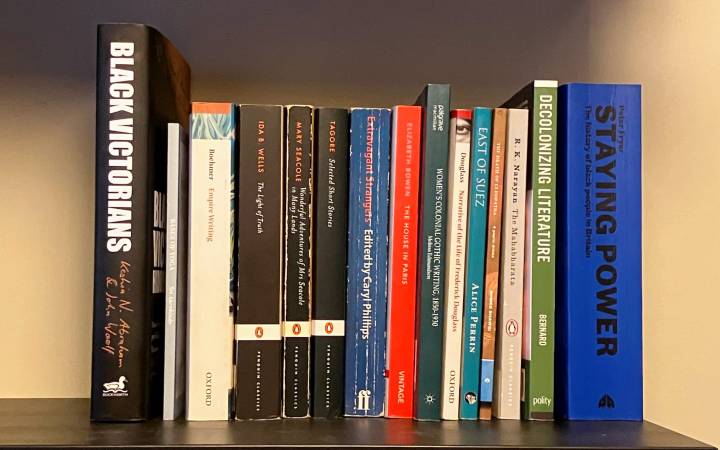Major Kingston University-led research set to help more students progress on to further study in science, technology, engineering and mathematics
Posted Friday 4 March 2016

A national research project led by Kingston University investigating the motivations and experiences of postgraduate applicants and students has been praised across the higher education sector as one of the most comprehensive reviews of its kind.
The Postgraduate Experience Project (PEP) investigated the attitudes of students, universities and employers towards masters programmes taught in science, technology, engineering and mathematics subjects. It was devised and led by Kingston University academic Michelle Morgan, a respected national and international student experience researcher and practitioner. The aim of the two and a half year project was to gather intelligence to help universities support more people to progress on to further study and produce graduates with the skills required by businesses and industries, Ms Morgan explained.
PEP was part of a major Government initiative to increase take-up of masters study. It was part-funded by a grant from the Higher Education Funding Council for England's (HEFCE) £25 million Postgraduate Support Scheme. The largest of 20 projects funded by the scheme, PEP involved a consortium of 11 institutions including Plymouth, Portsmouth, Brighton, Coventry, Wolverhampton, Lincoln, Teesside and Manchester Metropolitan, as well as Edinburgh University in Scotland and the University of South Wales.
 Kingston University academic Michelle Morgan led the Postgraduate Experience Project."The research provides us with an insight into postgraduate learning from the different perspective of all those involved," Ms Morgan said. "It will help us develop strategies to open up further study to people from a broader range of backgrounds. Institutions will able to use the data to develop more targeted and sustainable support for students and improve course design to better meet the needs of prospective students and employers. Ultimately, the aim is that this will lead to the sustainability of the postgraduate science, technology, engineering and mathematics study market in the United Kingdom."
Kingston University academic Michelle Morgan led the Postgraduate Experience Project."The research provides us with an insight into postgraduate learning from the different perspective of all those involved," Ms Morgan said. "It will help us develop strategies to open up further study to people from a broader range of backgrounds. Institutions will able to use the data to develop more targeted and sustainable support for students and improve course design to better meet the needs of prospective students and employers. Ultimately, the aim is that this will lead to the sustainability of the postgraduate science, technology, engineering and mathematics study market in the United Kingdom."
The report received praise from organisations such as the UK Council for Graduate Education (UKCGE), the Higher Education Academy, the Office for Fair Access, The Engineering Professors Council, and the National Union of Students. It is the first time the sector has a comprehensive and substantive picture of the motivations, barriers, concerns and anxieties of individuals from the admissions stage through to graduation. "Its legacy sits as one of the most comprehensive reviews of postgraduate taught students' attitudes and ambitions and it is a seminal study of this often overlooked sector of UK universities' portfolios," former UKCGE chair Professor Mick Fuller said
As part of the research, Kingston University awarded 28 PEP postgraduate scholarships - one of which went to 39-year-old Adeyinka Odusina. Originally from Nigeria, Adeyinka decided to return to Kingston University to take up a masters degree in structural design and construction management after completing his first degree in engineering and establishing a career in housing construction. The way the course was delivered was a key factor in his decision to return to education, he said. "It was a much more flexible experience to come back as a postgraduate student. The lectures were delivered in the evenings, which made it possible to fit studying around work," the father-of-two explained. Adeyinka is now hoping to study civil engineering at doctorate level. "My ambition is to become a leading expert in the engineering industry," he added.
The transition from study to employment was one of the focuses of the Postgraduate Experience Project. Ms Morgan recently visited the Houses of Parliament to meet with Business, Innovation and Skills Select Committee member Chris White MP, along with a group of small business representatives, to discuss the challenges faced by both students entering the workforce and employers needing graduates with relevant skills. "Through our research we found that many of the students who complete postgraduate courses often don't have enough relevant vocational experience to get a job," Ms Morgan said. "We're trying to identify how universities can work with small and medium-sized businesses to provide support to students who don't have much experience of being in the workforce."
Going forward, Ms Morgan revealed a consortium of ‘hidden champions' from small and medium-sized businesses were proactively looking at developing new ways to bridge the gaps between postgraduate students, higher education institutions and employers in terms of skills development and delivery.
- The full Postgraduate Experience Project report is now available on the project website along with the Briefing Papers outlining the headline findings of the different areas investigated.
- Find out more about postgraduate study at Kingston University.
Contact us
General enquiries:
Journalists only:
- Communications team
Tel: +44 (0)20 8417 3034
Email us



